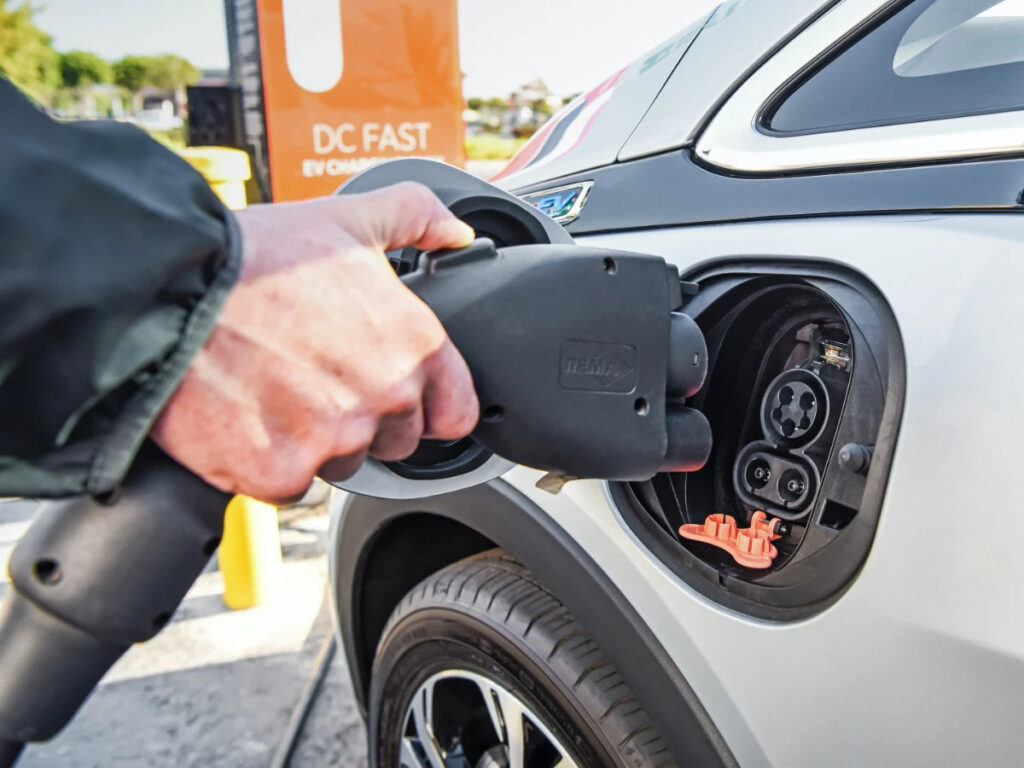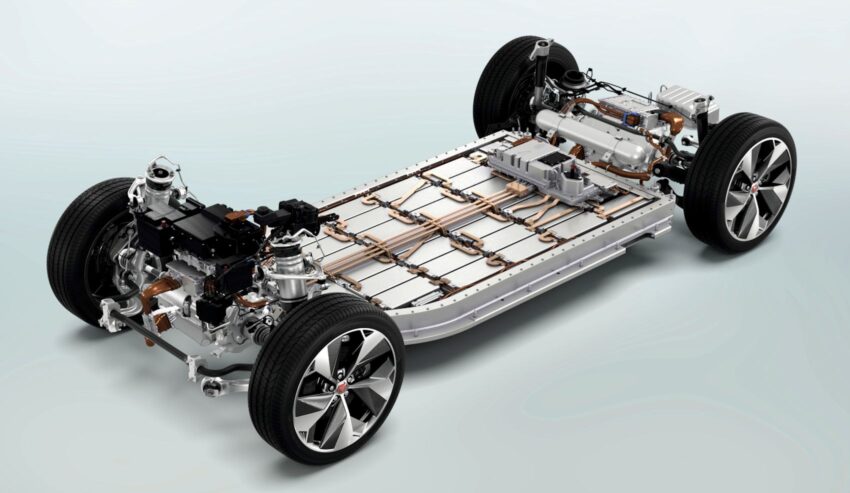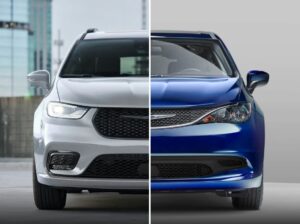How Long Does It Take To Charge An Electric Car?

Image Source: Google.com
Are you considering purchasing an electric car, but you’re not sure how long it will take to charge? One of the most significant differences between electric cars and traditional gasoline vehicles is how they’re powered. While gasoline cars are powered by fuel, electric cars are powered by batteries that need to be recharged periodically. But, how long does it take to charge an electric car? In this article, we’ll discuss everything you need to know about electric car charging times. This article is brought to you by Tradecarhub
Understanding Electric Car Batteries

Before we dive into how long it takes to charge an electric car, let’s briefly discuss how electric car batteries work. Electric car batteries are made up of cells, similar to those in your smartphone or laptop. These cells are linked together to form a battery pack that powers the car’s electric motor. When the battery is low, the car needs to be plugged into an electric power source to recharge the battery. Find out HOW DO I GET MY CATALYTIC CONVERTER MONITOR READY
Factors That Affect Charging Times
The amount of time it takes to charge an electric car depends on several factors, including the type of charger, the size of the battery pack, and the amount of charge remaining in the battery. Let’s take a closer look at each of these factors:
Type of Charger
There are three main types of electric car chargers: Level 1, Level 2, and DC fast chargers. Level 1 chargers are the slowest, with a charging rate of around 4-5 miles of range per hour. These chargers use a standard household 120-volt outlet and are typically included with your electric car purchase.
Level 2 chargers are faster than Level 1 chargers and can provide around 10-20 miles of range per hour of charging. These chargers require a 240-volt outlet and are often installed at home or in public charging stations.
DC fast chargers are the fastest type of charger and can provide up to 60-80 miles of range in just 20-30 minutes of charging. These chargers are typically found at public charging stations and are not as common as Level 1 and Level 2 chargers.
Size of Battery Pack
The size of the electric car’s battery pack also plays a significant role in charging times. Generally, the larger the battery pack, the longer it will take to charge. For example, a small electric car with a 40 kWh battery pack may take around 8 hours to charge fully on a Level 2 charger, while a larger electric SUV with an 80 kWh battery pack may take 16 hours or more to charge fully on the same charger.
Amount of Charge Remaining
The amount of charge remaining in the battery also affects charging times. Charging an electric car from 0-100% takes longer than charging from 20-80%, for example. Additionally, some electric cars have fast charging capabilities that can charge the battery to 80% in just 30 minutes, but charging the remaining 20% can take much longer.
Electric Car Charging Times
Now that we understand the factors that affect charging times let’s take a closer look at how long it takes to charge an electric car.
Level 1 Charging Times
Level 1 chargers typically provide around 4-5 miles of range per hour of charging. Here are some estimated charging times for electric cars using a Level 1 charger:
- Nissan Leaf: 22 hours
- Tesla Model S: 52 hours
- Chevrolet Bolt: 53 hours
- Ford Mustang Mach-E: 46 hours
Level 2 Charging Times
Level 2 chargers typically provide around 10-20 miles of range per hour of charging. Here are some estimated charging times for electric cars using a Level 2 charger:
- Nissan Leaf: 7-8 hours
- Tesla Model S: 8-10 hours
- Chevrolet Bolt: 9.5 hours
- Ford Mustang Mach-E: 10-11 hours
DC Fast Charging Times
DC fast chargers can provide up to 60-80 miles of range in just 20-30 minutes of charging. However, not all electric cars are compatible with DC fast chargers. Here are some estimated charging times for electric cars using a DC fast charger:
- Nissan Leaf: 40-60 minutes
- Tesla Model S: 40-75 minutes
- Chevrolet Bolt: 30 minutes for 80% charge
- Ford Mustang Mach-E: 45-60 minutes
It’s important to note that these charging times are estimates and can vary based on the factors we discussed earlier.
Tips to Speed Up Charging Times
While electric car charging times may seem long, there are several things you can do to speed up the process:
- Use a higher power charger: Upgrading to a Level 2 charger or DC fast charger can significantly reduce charging times.
- Charge when the battery is low: Charging an electric car when the battery is low is faster than charging when the battery is almost full.
- Avoid extreme temperatures: Charging times can be longer in extreme temperatures, so try to charge your electric car in mild weather conditions.
- Use regenerative braking: Some electric cars have regenerative braking systems that can help recharge the battery while driving.
In conclusion, the amount of time it takes to charge an electric car depends on several factors, including the type of charger, the size of the battery pack, and the amount of charge remaining in the battery. Level 1 chargers are the slowest, while DC fast chargers are the fastest. Upgrading to a higher-power charger, charging when the battery is low, avoiding extreme temperatures, and using regenerative braking can all help speed up charging times. Overall, with proper planning and patience, charging an electric car can become a seamless part of your daily routine.








